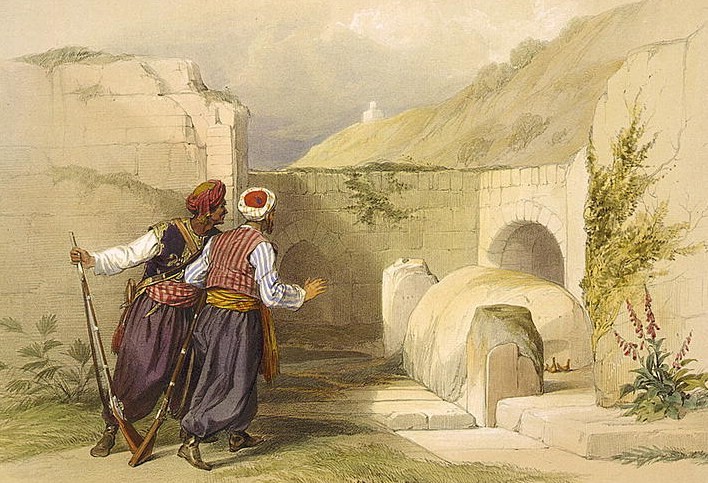The story of Yosef—or rather, his bones—ends with a “to be continued.” Surprisingly, that story does not end in Sefer Shemot when Moshe, as the great exodus from Egypt commenced, famously took Yosef’s bones with him.
The conclusion of the story of Yosef’s bones appears in a surprising place—the end of Sefer Yehoshua. What makes its appearance there even more surprising is its total disconnect from the rest of the narrative in that place.
These four pesukim would seem to be an ideal ending to Sefer Yehoshua:
And Joshua sent the people away, every man to his inheritance. And it was after these things, that Joshua the son of Nun, the servant of the Lord, died, being a hundred and ten years old. And they buried him in the border of his inheritance in Timnath-serah, which is in Mount Ephraim, on the north side of the hill of Gaash.And Israel served the Lord all the days of Joshua, and all the days of the elders that outlived Joshua, and who had known all the works of the Lord, that He had done for Israel.
However, there are two more verses—in fact, two more burials—with which the book conclude:
And the bones of Joseph, which the children of Israel had brought up out of Egypt, they buried in Shechem, in the parcel of ground which Jacob bought from the sons of Hamor the father of Shechem, for a hundred pieces of money; and they became the inheritance of the children of Joseph.And Eleazar the son of Aaron died; and they buried him in the hill of Phinehas his son, which was given to him in Mount Ephraim.
It is somewhat understandable why Eleazar’s burial is mentioned (though I believe this question requires further attention). Yehoshua’s appointment as leader was joined to Eleazar’s role as the Kohen Gadol:
He shall stand before Eleazar the kohen and seek [counsel from] him through the judgment of the Urim before the Lord. By his word they shall go, and by his word they shall come; he and all Israel with him, and the entire congregation." (B’midbar 27:21)
However, the mention of Yosef’s burial is very odd. It’s unlikely that it is mentioned here for chronological reasons. Bnei Yisrael probably didn't wait until after the burial of Yehoshua to bury Yosef.
Rashi remarks that we’ve come full circle! “From the place that he was stolen (Shechem) there he was returned.”
One problem with Rashi's comment: Yosef was not, in fact, stolen from Shechem. Even so, I believe that Rashi’s words are accurate. Shechem is where our focus should be. Let me explain.
It was the mismeeting of Shechem that precipitated what followed. His father, Yaakov, sent Yosef to Shechem to “see to the shalom of your brothers, and the shalom of the flocks, and bring me back word.” Shechem was to be a meeting of shalom. However, his brothers had departed from there. As Rashi says, “they departed from brotherhood.” If Yosef had not encountered the mysterious man in Shechem who just happened to know that his brothers had gone on to Dothan, Jewish history would not have taken its course.[1] With the peaceful settling of the land by the twelve tribes one chapter of Jewish history came to completion. At the age of 17 Yosef was sent by Yaakov to make peace with his brothers in Shechem. Now, hundreds of years later, Yosef truly returns to Shechem. Only at this point can we say, “How good and pleasant—for brothers to dwell together!”[2]
_____________________________________________________________________
[1] This is a paraphrase of Rabb J.B. Soloveitchik’s comments on these pesukim heard in a recorded lecture. https://www.yutorah.org/sidebar/lecture.cfm/767755/rabbi-joseph-b-soloveitchik/mechiras-yosef/
[2] Additionally, I believe that the recording of Yosef's burial at the end of Sefer Yehoshua broadens our understanding of that book. The events of Sefer Yehoshua were, in fact, the fulfillment of the words of Yosef, “פקד יפקד אלהים אתכם.” Only after Bnei Yisrael had conquered and settled in the Land could one truly say that this promise was fulfilled.

Comments